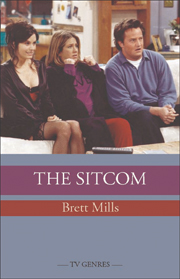2 - Genre
Published online by Cambridge University Press: 05 August 2013
Summary
I think there is a common misconception that sitcoms are made up of jokes: they're not.
(Sioned Wiliam 2005)I'm not sure people look to sitcom for 100% reality, do they?
(Sophie Clarke-Jervoise 2005)This book – and the others which accompany it in this series – all work from an assumption that genre is a worthwhile critical tool for making sense of television. This is an approach with a long-standing tradition, for ‘genre is one of the principal ways in which audiences, producers and critics routinely classify media’ (Branston 2006: 44). To talk about different kinds of television – such as sitcoms, quiz shows, news programmes, drama series and children's programmes – is to talk in terms of genre, carrying out the process of classification which Branston notes. This means that genre study is interested in defining multiple texts as ‘a class of like objects’ (Harris 1995: 509) whose similarities can be spotted and recognised. It can often seem that categorising programmes in this way is an obvious and straightforward process; as will be shown below, sitcom has often been understood as an ‘obvious’ and ‘straightforward’ form of programming which is east to spot and simple to define. Yet studies of all forms of genre have noted that such classification is rarely a clear-cut activity, and Glen Creeber warns on the opening page of his book on genre that ‘it would be wrong to suggest that the use of genre is always this simple’ (2008: 1).
- Type
- Chapter
- Information
- The Sitcom , pp. 24 - 49Publisher: Edinburgh University PressPrint publication year: 2009

